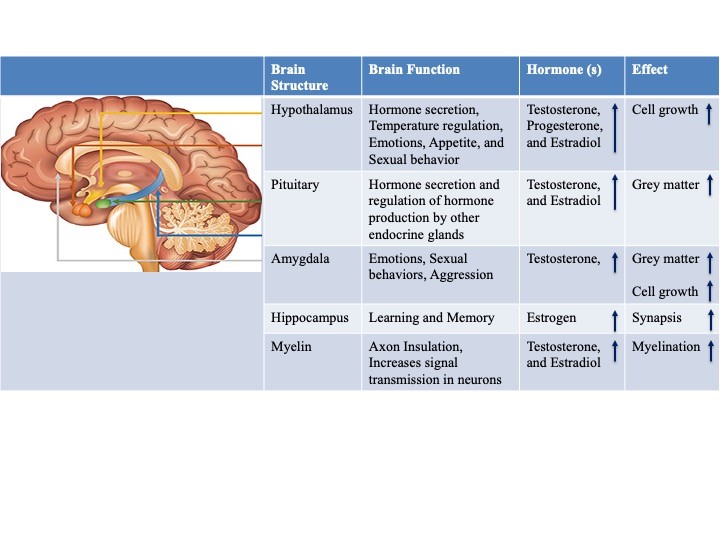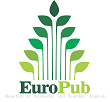Quality of nutrition for graceful ageing
DOI:
https://doi.org/10.18686/fnc262Keywords:
ageing; cognition; macronutrients; micronutrients; microbiota-gut-brain axis; neuro-degeneration; nutritionAbstract
A balanced nutritional diet is very important to consume to maintain a good health specially, during ageing. Fruits, nuts, vegetables, and fish contain antioxidants and anti-inflammatory components which can reduce the age-related risk of having cognitive decline and other various neurodegenerative diseases, like AD, PD, etc. There are many studies that have shown the impacts of nutrition on health and disease. Here we focus on age-related complications and their management with diet. Specifically, we highlight the roles of micronutrients as well as macronutrients on the gut-brain axis and their impact on brain function during ageing. These analyses may have some therapeutic value and/or the management of the cognitive dis-functions during ageing.

Downloads
Published
How to Cite
Issue
Section
License
Copyright (c) 2025 Author(s)

This work is licensed under a Creative Commons Attribution 4.0 International License.
References
1. Peters R. Ageing and the brain. Postgraduate Medical Journal. 2006; 82(964): 84-88. doi: 10.1136/pgmj.2005.036665 DOI: https://doi.org/10.1136/pgmj.2005.036665
2. Murman D. The Impact of Age on Cognition. Seminars in Hearing. 2015; 36(03): 111-121. doi: 10.1055/s-0035-1555115 DOI: https://doi.org/10.1055/s-0035-1555115
3. Castelli V, Benedetti E, Antonosante A, et al. Neuronal Cells Rearrangement During Aging and Neurodegenerative Disease: Metabolism, Oxidative Stress and Organelles Dynamic. Frontiers in Molecular Neuroscience. 2019; 12. doi: 10.3389/fnmol.2019.00132 DOI: https://doi.org/10.3389/fnmol.2019.00132
4. Cleeland C, Pipingas A, Scholey A, et al. Neurochemical changes in the aging brain: A systematic review. Neuroscience & Biobehavioral Reviews. 2019; 98: 306-319. doi: 10.1016/j.neubiorev.2019.01.003 DOI: https://doi.org/10.1016/j.neubiorev.2019.01.003
5. Lee J and Kim H-J. Normal Aging Induces Changes in the Brain and Neurodegeneration Progress: Review of the Structural, Biochemical, Metabolic, Cellular, and Molecular Changes. Front. Aging Neurosci. 2022; 14:931536. doi: 10.3389/fnagi.2022.931536 DOI: https://doi.org/10.3389/fnagi.2022.931536
6. Memory Problems, Forgetfulness, and Aging. Available online: https://www.nia.nih.gov/health/memory-loss-and-forgetfulness/memory-problems-forgetfulness-and-aging (accessed on October 2024).
7. Aging and Nutrition. Available online: https://behavioralnutrition.org/aging-and-nutrition (accessed on 10 October 2024).
8. Kalt W, Cassidy A, Howard LR, et al. Recent Research on the Health Benefits of Blueberries and Their Anthocyanins. Advances in Nutrition. 2020; 11(2): 224-236. doi: 10.1093/advances/nmz065 DOI: https://doi.org/10.1093/advances/nmz065
9. Ali SS, Ahsan H, Zia MK, et al. Understanding oxidants and antioxidants: Classical team with new players. Journal of Food Biochemistry. 2020; 44(3). doi: 10.1111/jfbc.13145 DOI: https://doi.org/10.1111/jfbc.13145
10. Curtis PJ, Berends L, van der Velpen V, Jennings A, Haag L, Chandra P, et. al. Blueberry anthocyanin intake attenuates the postprandial cardiometabolic effect of an energy-dense food challenge: Results from a double blind, randomized controlled trial in metabolic syndrome participants. Clin Nutr. 2022; 41(1): 165-176. doi: 10.1016/j.clnu.2021.11.030. DOI: https://doi.org/10.1016/j.clnu.2021.11.030
11. Liu S, Luo J, Xiao Z, Wu W, Liang X, Ding S, et. al. Low dietary vitamin E intake is associated with high risk of incident dementia among older adults: The Shanghai Aging Study. Front. Nutr. 2022; 9: 1036795. doi: 10.3389/fnut.2022.1036795 DOI: https://doi.org/10.3389/fnut.2022.1036795
12. Travica N, Ried K, Sali A, et al. Plasma Vitamin C Concentrations and Cognitive Function: A Cross-Sectional Study. Frontiers in Aging Neuroscience. 2019; 11. doi: 10.3389/fnagi.2019.00072 DOI: https://doi.org/10.3389/fnagi.2019.00072
13. Li Z, Lee HW, Liang X, et al. Profiling of Phenolic Compounds and Antioxidant Activity of 12 Cruciferous Vegetables. Molecules. 2018; 23(5): 1139. doi: 10.3390/molecules23051139 DOI: https://doi.org/10.3390/molecules23051139
14. Available online: https://fdc.nal.usda.gov/fdc-app.html#/food-details/1103174/nutrients (accessed on 10 October 2024).
15. Alisi L, Cao R, De Angelis C, et al. The Relationships Between Vitamin K and Cognition: A Review of Current Evidence. Frontiers in Neurology. 2019; 10. doi: 10.3389/fneur.2019.00239 DOI: https://doi.org/10.3389/fneur.2019.00239
16. Alisi L, Cafolla C, Gentili A, et al. Vitamin K Concentration and Cognitive Status in Elderly Patients on Anticoagulant Therapy: A Pilot Study. Journal of Aging Research. 2020; 2020: 1-7. doi: 10.1155/2020/9695324 DOI: https://doi.org/10.1155/2020/9695324
17. Klomparens EA, Ding Y. The neuroprotective mechanisms and effects of sulforaphane. Brain Circ. 2019; 5(2): 74-83. doi: 10.4103/bc.bc_7_19 DOI: https://doi.org/10.4103/bc.bc_7_19
18. Gorji N, Moeini R, Memariani Z. Almond, hazelnut and walnut, three nuts for neuroprotection in Alzheimer’s disease: A neuropharmacological review of their bioactive constituents. Pharmacological Research. 2018; 129: 115-127. doi: 10.1016/j.phrs.2017.12.003 DOI: https://doi.org/10.1016/j.phrs.2017.12.003
19. Chauhan A, Chauhan V. Beneficial Effects of Walnuts on Cognition and Brain Health. Nutrients. 2020; 12(2): 550. doi: 10.3390/nu12020550 DOI: https://doi.org/10.3390/nu12020550
20. Nishi SK, Sala-Vila A, Julvez J, et al. Impact of Nut Consumption on Cognition across the Lifespan. Nutrients. 2023; 15(4): 1000. doi: 10.3390/nu15041000 DOI: https://doi.org/10.3390/nu15041000
21. Li F, Jiang W, Wang J, et al. Beneficial Effects of Nut Consumption on Cognitive Function Among Elderly: Findings From a 6-Year Cohort Study. Frontiers in Aging Neuroscience. 2022; 14. doi: 10.3389/fnagi.2022.816443 DOI: https://doi.org/10.3389/fnagi.2022.816443
22. Dighriri IM, Alsubaie AM, Hakami FM, et al. Effects of Omega-3 Polyunsaturated Fatty Acids on Brain Functions: A Systematic Review. Cureus. Published online October 9, 2022. doi: 10.7759/cureus.30091 DOI: https://doi.org/10.7759/cureus.30091
23. McNamara RK, Almeida DM. Omega-3 Polyunsaturated Fatty Acid Deficiency and Progressive Neuropathology in Psychiatric Disorders: A Review of Translational Evidence and Candidate Mechanisms. Harvard Review of Psychiatry. 2019; 27(2): 94-107. doi: 10.1097/hrp.0000000000000199 DOI: https://doi.org/10.1097/HRP.0000000000000199
24. Kokubun K, Nemoto K, Yamakawa Y. Fish Intake May Affect Brain Structure and Improve Cognitive Ability in Healthy People. Frontiers in Aging Neuroscience. 2020; 12. doi: 10.3389/fnagi.2020.00076 DOI: https://doi.org/10.3389/fnagi.2020.00076
25. Pinna N, Ianni F, Selvaggini R, Urbani S, Codini M, Grispoldi L, et. al. Antioxidant Activity and Carotenoid Characterization of Extracts from Peel and Filaments. Foods. 2023; 12 (21):4 035. doi: 10.3390/foods12214035. DOI: https://doi.org/10.3390/foods12214035
26. Shang X, Hill E, Zhu Z, et al. Macronutrient Intake and Risk of Dementia in Community-Dwelling Older Adults: A Nine-Year Follow-Up Cohort Study. Journal of Alzheimer’s Disease. 2021; 85(2): 791-804. doi:10.3233/JAD-215042 DOI: https://doi.org/10.3233/JAD-215042
27. Portbury S, Adlard P. Zinc Signal in Brain Diseases. International Journal of Molecular Sciences. 2017; 18(12): 2506. doi: 10.3390/ijms18122506 DOI: https://doi.org/10.3390/ijms18122506
28. Ferreira A, Neves P, Gozzelino R. Multilevel Impacts of Iron in the Brain: The Cross Talk between Neurophysiological Mechanisms, Cognition, and Social Behavior. Pharmaceuticals. 2019; 12(3): 126. doi: 10.3390/ph12030126 DOI: https://doi.org/10.3390/ph12030126
29. An Y, Li S, Huang X, et al. The Role of Copper Homeostasis in Brain Disease. International Journal of Molecular Sciences. 2022; 23(22): 13850. doi: 10.3390/ijms232213850 DOI: https://doi.org/10.3390/ijms232213850
30. Kirkland AE, Sarlo GL, Holton KF. The Role of Magnesium in Neurological Disorders. Nutrients. 2018; 10(6): 730. doi: 10.3390/nu10060730 DOI: https://doi.org/10.3390/nu10060730
31. Available online: https://ods.od.nih.gov/factsheets/Choline-HealthProfessional/ (accessed on 10 October 2024).
32. Ford AH, Almeida OP. Effect of Vitamin B Supplementation on Cognitive Function in the Elderly: A Systematic Review and Meta-Analysis. Drugs & Aging. 2019; 36(5): 419-434. doi: 10.1007/s40266-019-00649-w DOI: https://doi.org/10.1007/s40266-019-00649-w
33. Kennedy D. B Vitamins and the Brain: Mechanisms, Dose and Efficacy—A Review. Nutrients. 2016; 8(2): 68. doi: 10.3390/nu8020068 DOI: https://doi.org/10.3390/nu8020068
34. Zhao R, Han X, Zhang H, et al. Association of vitamin E intake in diet and supplements with risk of dementia: A meta-analysis. Frontiers in Aging Neuroscience. 2022; 14. doi: 10.3389/fnagi.2022.955878 DOI: https://doi.org/10.3389/fnagi.2022.955878
35. Han QQ, Shen TT, Wang F, et al. Preventive and Therapeutic Potential of Vitamin C in Mental Disorders. Current Medical Science. 2018; 38(1): 1-10. doi: 10.1007/s11596-018-1840-2 DOI: https://doi.org/10.1007/s11596-018-1840-2
36. Kulczyński B, Sidor A, Gramza-Michałowska A. Antioxidant potential of phytochemicals in pumpkin varieties belonging to Cucurbita moschata and Cucurbita pepo species. CyTA - Journal of Food. 2020; 18(1): 472-484. doi: 10.1080/19476337.2020.1778092 DOI: https://doi.org/10.1080/19476337.2020.1778092
37. Garrido-Dzib AG, Chávez-Loría G, Magallón-Zertuche V, et al. Micro- and Macronutrient Intake and Food Group Frequency Consumed by Subjects with Cognitive Impairment and Dementia in Latin America: A Systematic Review. Journal of Alzheimer’s Disease. 2023; 94(2): 425-439. doi: 10.3233/jad-230231 DOI: https://doi.org/10.3233/JAD-230231
38. Reddy PH, Manczak M, Yin X, et al. Protective Effects of Indian Spice Curcumin Against Amyloid-β in Alzheimer’s Disease. Journal of Alzheimer’s Disease. 2018; 61(3): 843-866. doi: 10.3233/jad-170512 DOI: https://doi.org/10.3233/JAD-170512
39. Wan Y, Liang Y, Liang F, et al. A Curcumin Analog Reduces Levels of the Alzheimer’s Disease-Associated Amyloid-β Protein by Modulating AβPP Processing and Autophagy. Journal of Alzheimer’s Disease. 2019; 72(3): 761-771. doi: 10.3233/jad-190562 DOI: https://doi.org/10.3233/JAD-190562
40. Bakoyiannis I, Daskalopoulou A, Pergialiotis V, et al. Phytochemicals and cognitive health: Are flavonoids doing the trick? Biomedicine & Pharmacotherapy. 2019; 109: 1488-1497. doi: 10.1016/j.biopha.2018.10.086 DOI: https://doi.org/10.1016/j.biopha.2018.10.086
41. Martín MA, Goya L, de Pascual-Teresa S. Effect of Cocoa and Cocoa Products on Cognitive Performance in Young Adults. Nutrients. 2020; 12(12): 3691. doi: 10.3390/nu12123691 DOI: https://doi.org/10.3390/nu12123691
42. Shin JH, Kim CS, Cha J, et al. Consumption of 85% cocoa dark chocolate improves mood in association with gut microbial changes in healthy adults: a randomized controlled trial. The Journal of Nutritional Biochemistry. 2022; 99: 108854. doi: 10.1016/j.jnutbio.2021.108854 DOI: https://doi.org/10.1016/j.jnutbio.2021.108854
43. Dietz C, Dekker M. Effect of Green Tea Phytochemicals on Mood and Cognition. Current Pharmaceutical Design. 2017; 23(19): 2876-2905. doi: 10.2174/1381612823666170105151800 DOI: https://doi.org/10.2174/1381612823666170105151800
44. Williams JL, Everett JM, D’Cunha NM, et al. The Effects of Green Tea Amino Acid L-Theanine Consumption on the Ability to Manage Stress and Anxiety Levels: a Systematic Review. Plant Foods for Human Nutrition. 2019; 75(1): 12-23. doi: 10.1007/s11130-019-00771-5 DOI: https://doi.org/10.1007/s11130-019-00771-5
45. Ngo DH, Vo TS. An Updated Review on Pharmaceutical Properties of Gamma-Aminobutyric Acid. Molecules. 2019; 24(15): 2678. doi: 10.3390/molecules24152678 DOI: https://doi.org/10.3390/molecules24152678
46. Baba Y, Inagaki S, Nakagawa S, et al. Effect of Daily Intake of Green Tea Catechins on Cognitive Function in Middle-Aged and Older Subjects: A Randomized, Placebo-Controlled Study. Molecules. 2020; 25(18): 4265. doi: 10.3390/molecules25184265 DOI: https://doi.org/10.3390/molecules25184265
47. Kakutani S, Watanabe H, Murayama N. Green Tea Intake and Risks for Dementia, Alzheimer’s Disease, Mild Cognitive Impairment, and Cognitive Impairment: A Systematic Review. Nutrients. 2019; 11(5): 1165. doi: 10.3390/nu11051165 DOI: https://doi.org/10.3390/nu11051165
48. Ikram M, Park TJ, Ali T, et al. Antioxidant and Neuroprotective Effects of Caffeine against Alzheimer’s and Parkinson’s Disease: Insight into the Role of Nrf-2 and A2AR Signaling. Antioxidants. 2020; 9(9): 902. doi: 10.3390/antiox9090902 DOI: https://doi.org/10.3390/antiox9090902
49. McEvoy CT, Leng Y, Peeters GM, et al. Interventions involving a major dietary component improve cognitive function in cognitively healthy adults: a systematic review and meta-analysis. Nutrition Research. 2019; 66: 1-12. doi: 10.1016/j.nutres.2019.02.008 DOI: https://doi.org/10.1016/j.nutres.2019.02.008
50. Melzer TM, Manosso LM, Yau S, et al. In Pursuit of Healthy Aging: Effects of Nutrition on Brain Function. Int. J. Mol. Sci. 2021; 22L 5026. do: 10.3390/ ijms22095026 DOI: https://doi.org/10.3390/ijms22095026
51. Petersson SD, Philippou E. Mediterranean Diet, Cognitive Function, and Dementia: A Systematic Review of the Evidence. Advances in Nutrition. 2016; 7(5): 889-904. doi: 10.3945/an.116.012138 DOI: https://doi.org/10.3945/an.116.012138
52. Athanasopoulos D, Karagiannis G, Tsolaki M. Recent Findings in Alzheimer Disease and Nutrition Focusing on Epigenetics. Advances in Nutrition. 2016; 7(5): 917-927. doi: 10.3945/an.116.012229 DOI: https://doi.org/10.3945/an.116.012229
53. Sales NMR, Pelegrini PB, Goersch MC. Nutrigenomics: Definitions and Advances of This New Science. Journal of Nutrition and Metabolism. 2014; 2014: 1-6. doi: 10.1155/2014/202759 DOI: https://doi.org/10.1155/2014/202759




.jpg)
.jpg)

